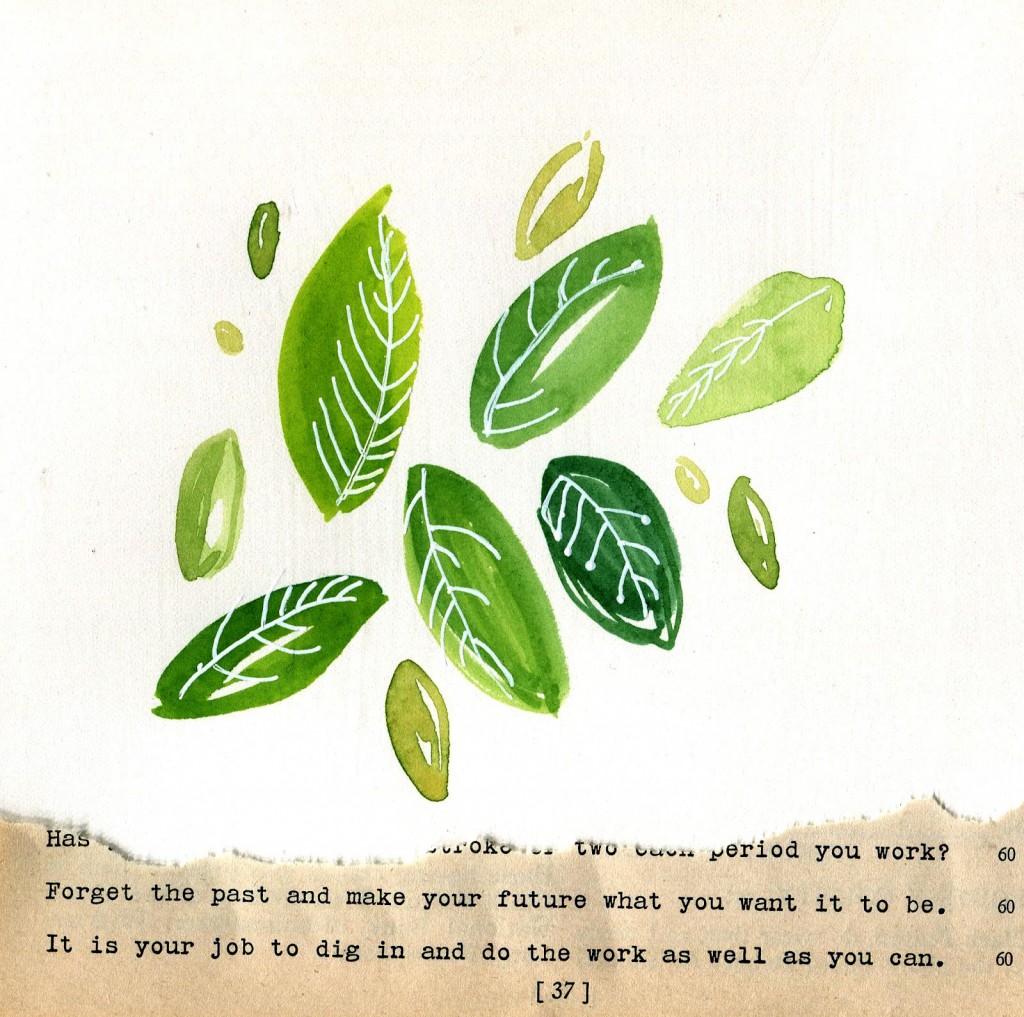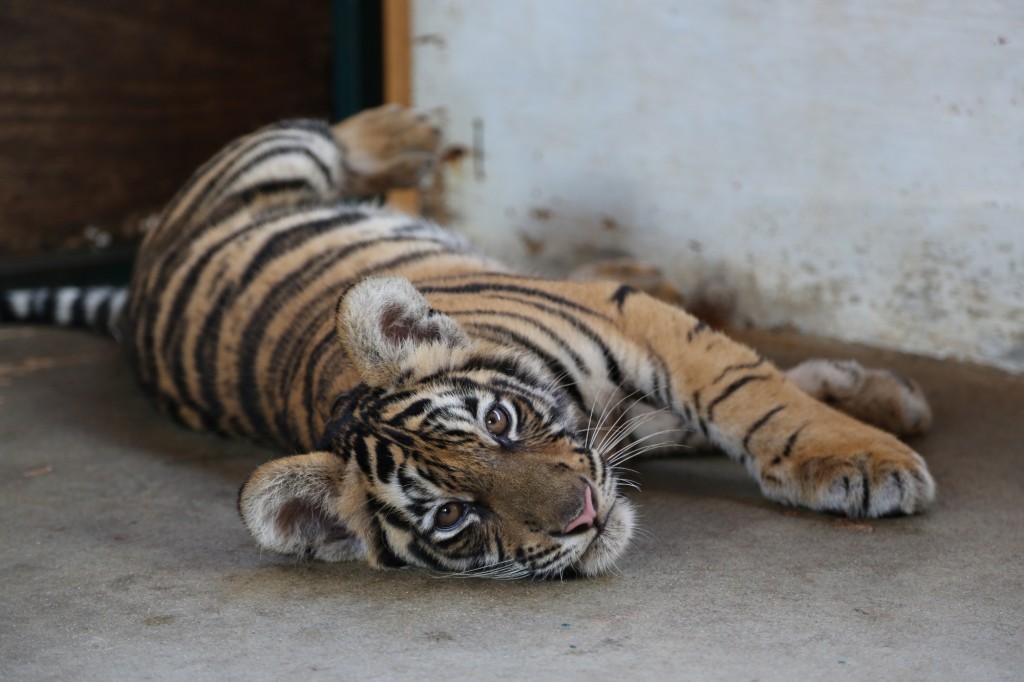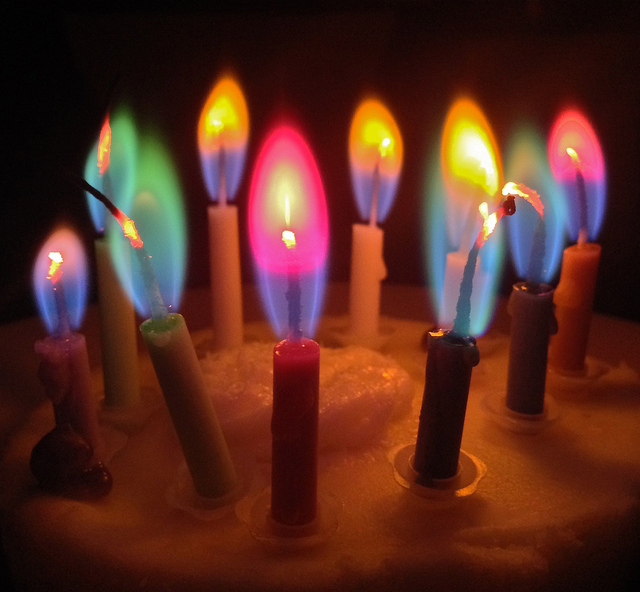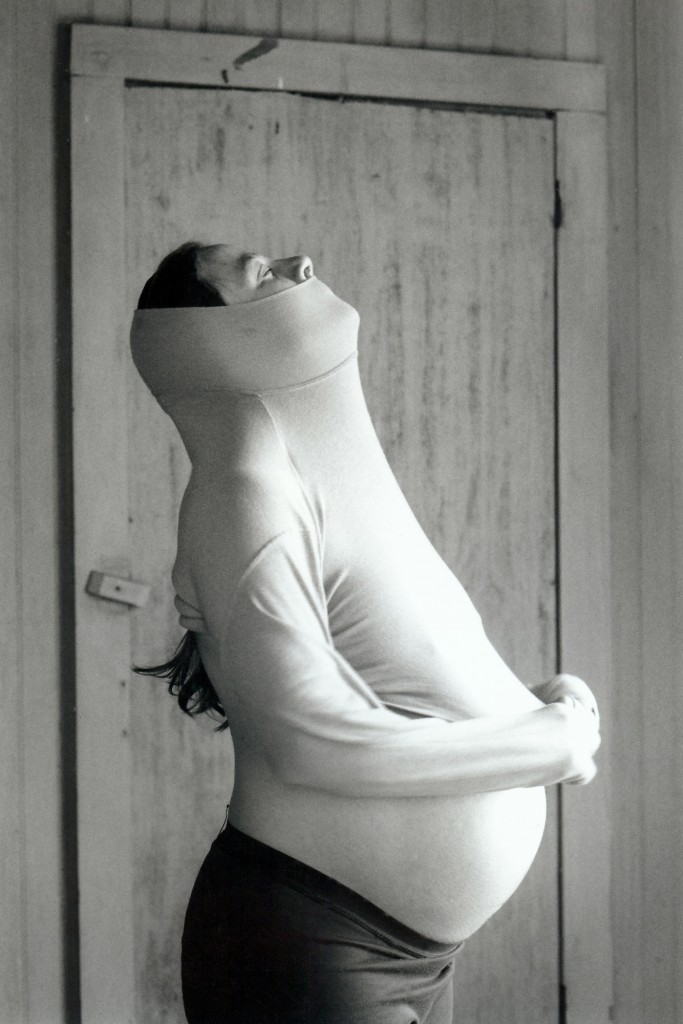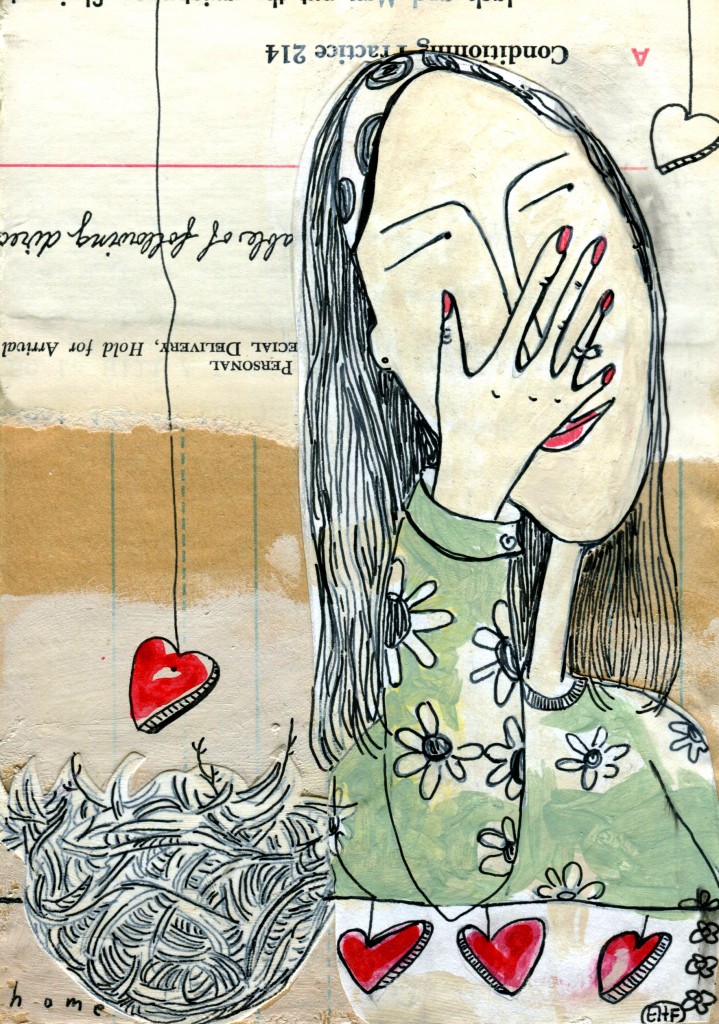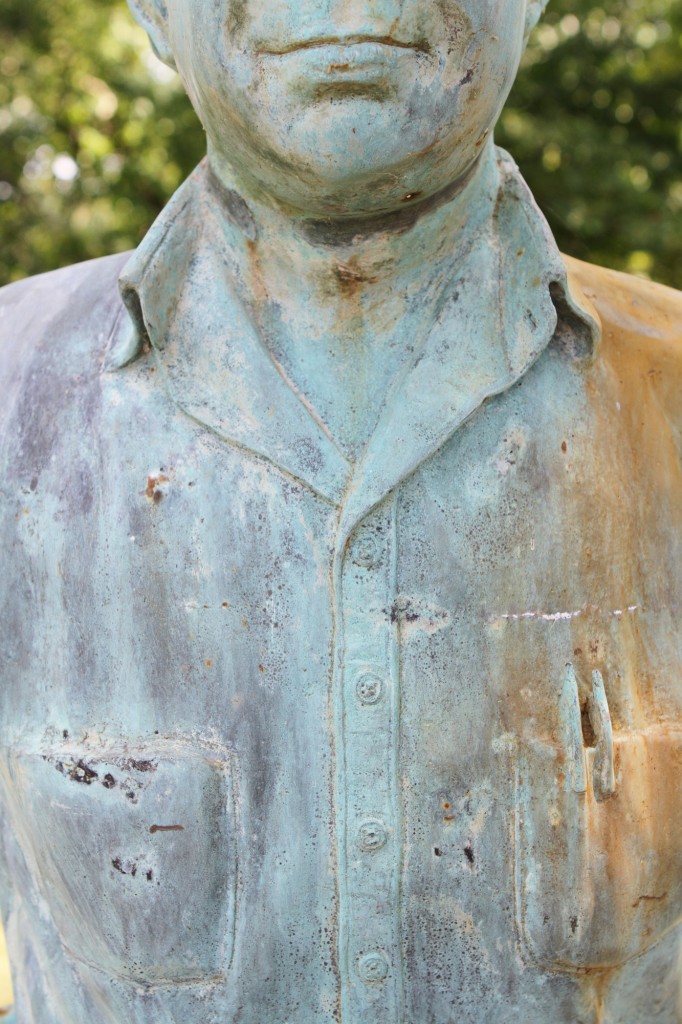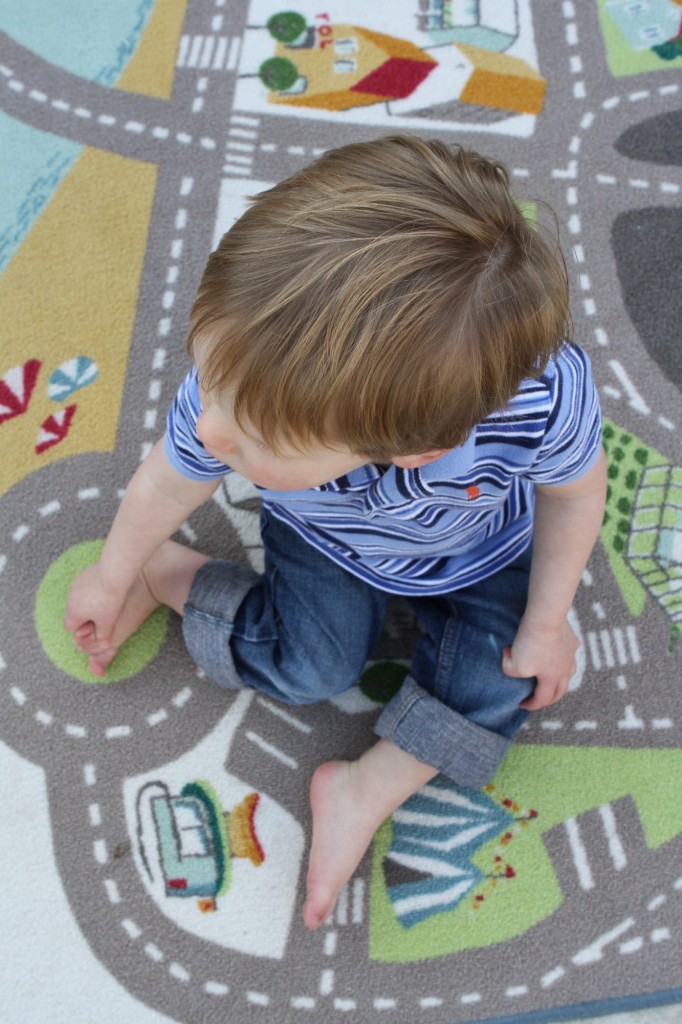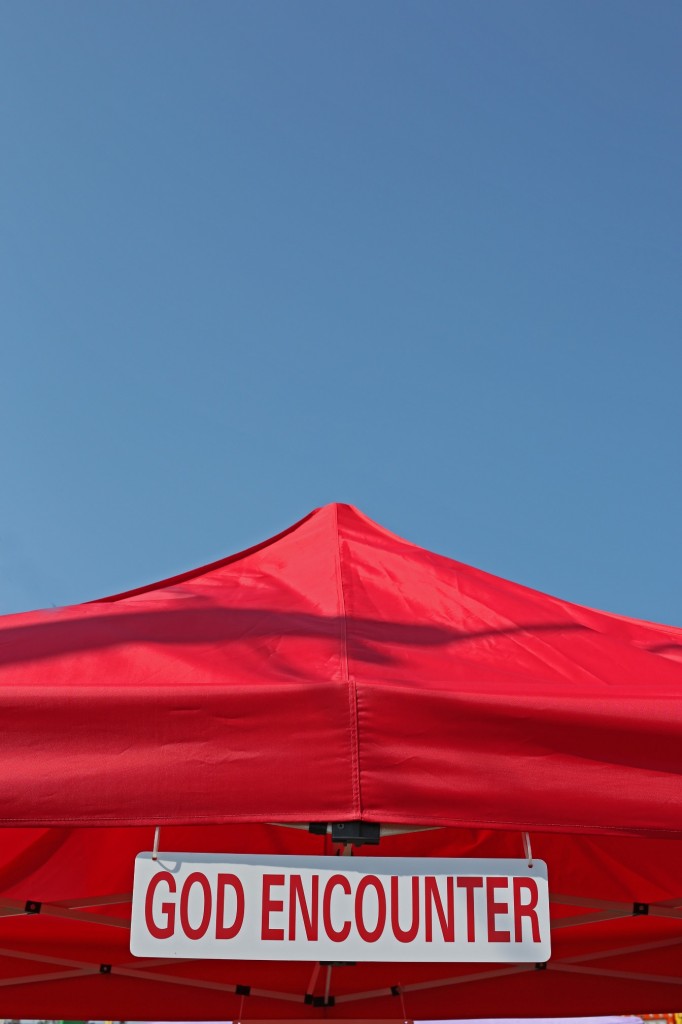
By Nicole Walker
Max, three and a quarter years old, wakes up in the morning, rubbing the sleep out of his eyes, asking, “Do I have to go to school tomorrow?”
“You have to go to school tomorrow and today.”
“Today?”
He is crushed. Tears. “But I want to stay with Mama.”
Who doesn’t? I’m lots of fun, staring at my computer all day and complaining about the news.
I’m making his sister, Zoe’s, lunch. He comes out wearing shorts, a long-sleeved shirt, red cowboy boots, gloves, and a helmet. It’s thirty-three degrees outside. “Too cold for shorts, bubba.”
“But I want shorts.” If this kid wins any records, one of them will be able to sustain the word want for forty-five seconds.
“Fine. Freeze.” This is not a good thing to say to a three-year-old and yet, it’s a good thing to say to Max because you will not win. You will not offer him candy to change. You will not threaten him with punishment. You will not carry him and forcibly change him. Even if you manage to physically restrain him, he’ll run into his sister’s room to put his shorts back on.
“Grandpa’s wearing shorts.”
“Grandpa is not even here.”
And then he sees his dad, who is wearing flip-flops. Off go the boots.
I tuck his regular shoes and a pair of pants into his backpack. It seems cruel to make the preschool ladies fight the battle, but trying to convince Max to do something he doesn’t want to do is like trying to convince a pig to understand about the greatness of bacon.
Max’s teachers probably won’t take up the battle. He will be cold, but he won’t die of cold. It will warm up by noon, I tell myself. It’s perfectly normal to wear shorts in February, I think. He’s really quite warm-blooded, I say to myself.
I can go to great lengths to change my own mind.
•••
Farm-to-table has become tail-to-snout kind of dining. This works best when you’re talking about a fish. I love the whole trout. Hamachi cheek is my favorite food group. I can make good progress with a chicken. All the meat. The guts and bones for broth. I have eaten chicken feet before. The whole cow? Tongue. Sweetbreads, the thymus gland. Oxtail soup. I have made a lot of progress on the cow.
The idea behind the eating of the offal is to let nothing go to waste. It stems from a kind of environmentalism—if you’re going to do the evil of eating meat, you should at least have the sense to make use of all. It’s tied to a respect for indigenous cultures—Native Americans used the whole animal. It’s tied to the DIY food movement—butchering, cooking, smoking, and curing your own meat is a sign of self-sufficiency. It’s a sign of respect. You have to believe that eating the whole animal is for the greater good. The greater good becomes a kind of religion. This religion, like all religions, comes through the stomach and convinces through intestinal satisfaction. You have done the good work. You have ingested the good thing. Transubstantiation. Voila, animal is God in the belly. Voila, you are at once person, cow, and God. To make it all the way to heaven, you have to be a stubborn convert, eat the ears of a cow in the form of the ears of cow, not in the easy form hotdog. One is not born into the church of nose-to-tail gastronomy. Becoming a lover of all food requires conversion.
•••
When I pick Zoe up from second grade on Wednesdays, I bring her a smoothie so she has some energy before gymnastics. I make one for Max, too, and pick him up after I finish my grading during Zoe’s class. One Wednesday, I had a late meeting. I couldn’t get home to make smoothies. I picked up some Pirate’s Booty and Strawberry Monster Odwallas at the grocery store. This was good for Zoe. She loves Pirate’s Booty. This was not good for Max.
“But I want my yellow cup.”
“Look Max, this is better. It’s got more sugar!”
“But it’s not in my yellow cup.”
“Pirate’s Booty! Full of salt AND sugar,” I try to convince him. “It’s delicious.”
“It tastes like Styrofoam.”
Lesson to take from this: do not teach your kid to eat the edible packing peanuts shipped with Apple products. Do not teach your stubborn kid the word “Styrofoam.” Only stubborn kids will learn the word to use against you. Do not indulge your kid with a yellow cup every day. Maybe just every other day. Kids love rituals, but they should love sugar more.
•••
A farm-to-table restaurant in Boston called Estragon serves a whole pig head. A server brings the head to your table. The pig’s head has been roasted. Or, rather, a chef stuck a pig’s head in an oven. It looks like Luau pig. The skin is crispy brown. The head is small. It’s a baby pig. “Look at that.” (Many syllables on the that). “Hello, baby,” someone says. A table of four cannot be expected to eat an adult pig’s head elegantly.
A table of four cannot even be expected to eat a baby pig’s head elegantly. Fingers will be involved, but not at first. At first, feign utensils. The cheeks come off easy enough. Slice them like chicken breasts off the bone, then slice them crosswise. Serve a slice to the diner to your right. The other cheek, let your friends on the other side of the table carve for fear too much reaching will soak your fancy sleeve with grease. What is it like? Carnitas. The most carnal carnitas you’ve ever head. Shredded pork has nothing on pork cheek. This cheek is not just on-the-bone but this cheek is braised not only near bone but in pig fat. There is a lot of pig fat. Do not bother to wipe your hands between head parts. There is nothing better than pig fat. There is more. You go on. Tongue first. Can’t be worse than the tacos de lengua you order quietly when they order carne asada. The skin? You’ve heard of cracklins. You suspect this is what they taste like although admittedly, you’ve never had cracklins. The snout? Iconographic pig is the cutest part of the pig.
You take a tiny bite for the collective cause. The brain? You know you’re not supposed to eat cow brain, for fear the bovine spongiform encephalopathy. You pride yourself on knowing what’s new in medical news as much as what’s new in foodie news. There is no porcine encephalopathy that you have heard of. You take a bite. The fattiest pork fat. The closest thing to foie gras. But the eyeball. You just close your own eyes and put the pig’s in your mouth, gnash it quickly. Most religions rely on a cross between knowing and not-knowing which is sin and which is not and you don’t want to know too much about the chewing and swallowing of eye. The sin is in the popping.
•••
“I want to wear my cowboy boots.”
“You are wearing your cowboy boots.” Max is indeed wearing his red cowboy boots.
“I want my cowboy boots.”
“Come here.” Max walks over to me. I pick him up. He puts his head on my shoulder and pats me on the back. He’s sorry that his mama is so confused. So is she.
The boots fall off one by one. He points to them on the floor. “See. I am not wearing my cowboy boots.”
Reality conforms to those who want it most. He wants it so much he makes it happen. I am proud of his rhetorical skills in an exhausted kind of way.
•••
Do you have to talk yourself into eating pig’s head? Do you have to talk others into joining you? What words do you use? When you ask the diners what they thought about the experience, they say, “It is a lot of work.” If you ask them, “Would you do it again?” They say, “No. Lobster’s a lot of work but I know where the cache of meat is. With the pig, it was too much work to get to the stores of meat. Same with crab. It’s too much work.”
You cannot eat a pig’s head alone. The first rule of a religion is that, if you do it alone, it’s not a religion, it’s a psychosis. You are going to have to find a way to bring the pig to the people. If you can eat bacon, which is the fat and muscled layers of a pig’s belly, then you can eat a snout! But we must make the word sound more beautiful than snout. To sell it to the less adventurous food-lovers, you’re going to have to rely on some words that convey a happier reality. Try “liebe.” The Germans won’t mind. Martin Buber, a major Austrian-born philosopher, promoted immanence. Austria is practically Germany. Love, love, love is everywhere.
•••
“Hey Max,” I call from the other room. “Zoe wants to go to sushi. You want to go?”
“No. I do not want to go to sushi. I want to stay home.”
“Why do you want to stay home? We’ve been home all day.”
“Stay home. Stay home. Stay home.”
He wins this one because for sure we don’t want to go to our favorite sushi place and have him scream, “Home. Home. Home. I want to go home.”
I turn on the oven. Put some potatoes in to bake. I quick-brine some chicken thighs. Seven minutes before we sit down to eat, Max looks at me and says, “I thought we were going to sushi.”
I would like to stick my hands into his head and turn his brain around. I would like, at that moment, to massage some consistency into his head. But then, if consistent, he would not be Max.
•••
How do you talk people into doing things? How do you convince three-year-olds? Is the process the same? Think of the poor vegetarian. He wants to convince you that eating animals is disgusting. It’s bad for your health, for the planet, and for the animal. You’d think the best way for him to start was to serve you a pig’s head, make you confront your demons, your evil, your sin. But something happens to the human mind. It resists conversion, at least when it comes to fat and meat. The stomach that a moment ago churned against the idea of popping an eyeball now somehow sends signals to the salivary glands to make them water. The vegetarian is aghast that you are chewing on an ear right in front of him. You offer him the other ear. He does not take a bite. You are at an impasse. No converts this night.
•••
I spend my life trying to convince Max to do what I want him to do. To put on shoes. To eat some broccoli. To go to sleep my god please go to sleep. But the point of having kids in the first place is to be converted unto them.
“Yesterday, there was a bird on my bed who told me I should be Spiderman and he gave me webs. I should take my webs outside and fight the bad guys.”
“Who are the bad guys?”
“There are no bad guys, mama. Come outside and see.” And Max takes me outside to show me where he would shoot his webs if there were bad guys but now there are only hummingbirds.
“See? No bad guys. No webs. Hummingbirds.”
“You like hummingbirds, Max?”
“I love hummingbirds.”
And thus, the religion of Max.
•••
If you name the pig snout “liebe,” you have a naming strategy akin to religion’s. Eucharist for cracker. Wine for blood. If you make eating pig head something you do every six weeks when Bob and Sue come to town, you have the routine of Sunday church-going, Easter, Christmas. If you repeat it in the right order. If you anoint the pig’s head with olive oil, if you say Grace in the form of, oh my god, I can’t eat that, and then do, you will have your Christ. Your farm-to-table religion. You are leading by example. While everyone else eats bacon, you are sacrificing by crunching an eyeball between your teeth. Transubstantiation. The idea of transforming yourself is what religion is really good at. Conversion is as satisfying as eating pig’s fat. It’s even better that you had once been so confirmed in your original morality: no eyeballs for me! And yet now, you wake up some nights craving the jelly pop of eye.
•••
Max convinces me every day, not by the power of persuasion but by the power of naming and ritual. Those are not cowboy boots. I want juice—not in a cup but in a cup. My face is not dirty. This is not even face. It is dirt. And dirt should be dirty. “Mama, you should sleep by me.”
“But this is not my bed,” he says, trying to convince me I should sleep there. He points to his bed. “It is your bed.” He pats the pillow. “Sleep by me.” I lie down. I can sleep in my bed tomorrow, I tell myself. Perhaps conversion is a daily thing.
I used to think I was a bad mother for Max. I had been, to my mind, a good, patient, not-argumentative mother with Zoe. But lately I’ve been thinking that Zoe converted me first to her own religion. She wanted to keep the tent up in the front room for six weeks on end. We let her. She made me and Erik lie down on the floor so she could cover my face with washcloths and say “go to sleep.” We did. She only ate food cut into the shape of squares. Max has a whole different list of jobs for me. How do I become the better mother?
•••
Max asks for hot juice.
“You mean cold juice.”
“Hot. Juice.”
“I do not think you would like hot juice.”
“I want hot juice. Please.”
The “please” convinces me. Maybe hot juice is the new thing. I get out the orange juice from the fridge. I take out a pan. I pour some juice. I turn the heat on low. At what temperature should one heat juice?
I drain the warmish juice into a sippy cup. He takes a sip. Hands me back the cup. “I don’t like it.”
Ha! I’ve won, I think. But then who is the person getting out, pouring out the hot juice, replacing it with cold? Converted again.
The pig, too, with its hot, juicy fat wins the argument. Pig is persuasive.
•••
I read something the other day about a woman getting her family’s priorities in order. Love god first, then love husband, then love children, she wrote. If you take it to the next level, what you love keeps spiraling. Love eyeballs. Love pigs. Become a vegetarian. The vegetarians lack pig fat, ritual, and the renaming of products for other products. Even mock chicken they call “mock” chicken. The chef work involved to make vegetarian food is mostly chopping, not digging in or butchering or rendering. I love the hard work of finding crab meat even in the tiny tendrils of legs reminiscent of insects’. Maybe, though, work isn’t the way to get to God. Maybe, the easiness of tofu is.
Convert means to turn and look the other way. Max says, “Look here,” so I look. It’s easy. The doing is as easy as the saying. What do I see? I see the lilacs he calls birds and the squirrels he calls punch guys and the hummingbirds with spiderlike webs and I am born again. I call my pig cheek, pork. That is easier too.
•••
My friend Jesse called me the other day. Jesse’s a former tow truck company owner, former bouncer, former meth head, present adventurer. No one really grins anymore, but Jesse grins.
“I found one.”
“One what?”
“A pig’s head.”
“From where.”
“My friend. He raises pigs down in Camp Verde. He’ll give us a baby head.”
I had mentioned to Jesse that I wanted to cook a pig’s head but now I’m having second thoughts. Jesse knows everyone. Even pig farmers, apparently. I should have told someone who had no friends in Camp Verde who grew pigs. I should have told someone who had no friends.
But if that Jesse and I were going to do this thing, we had to convince others to join us. We couldn’t eat one pig’s head between the two of us. It would be wasteful. We wanted to start a movement. We needed to persuade some people this was a good idea. Not just flavor-wise. Not just adventure. But that it’s a good thing to do. Head-to-tail. Hard to do. Confront what you’re eating. Literally face-to-face. If we’re going to do this thing, let’s do it. Let’s make the big bigger. Come on. Come with us. One of us isn’t enough to achieve critical mass. But two is enough for missionary work.
•••
When Erik brings Zoe home from school, he and she find Max and me in our cowboy boots with gloves on. We are drinking hot juice. This time, apple. Out of a yellow cup. We are eating packing peanuts from Microsoft—the kind that are made out of corn starch. We offer some to Zoe. She tries, one. Says it needs salt. Max and I nod and shake salt onto the Styrofoam. We sing Styrofoam, Peanut, Styrofoam, Peanut until we convince Erik to try one.
“Tastes like Pirate’s Booty,” he says. We’ll see if we can convince Erik’s mom to try some next. She’s a vegetarian so I don’t have hope she’ll join the pig-head-eating sect but the Styrofoam-peanut sect—a good back up choice, if all other bacon-y persuasions fail.
•••
NICOLE WALKER’s Quench Your Thirst with Salt won the Zone 3 Award for Creative Nonfiction and was released in June 2013. She is the author of a collection of poems, This Noisy Egg (Barrow Street 2010) and edited, with Margot Singer, Bending Genre: Essays on Creative Nonfiction, (Bloomsbury, 2013) and with Rebecca Campbell—7 Artists, 7 Rings—an Artist’s Game of Telephone for the Huffington Post. A recipient of a fellowship from the National Endowment from the Arts, she’s nonfiction editor at Diagram and Associate Professor at Northern Arizona University in Flagstaff, Arizona.

 Follow
Follow
